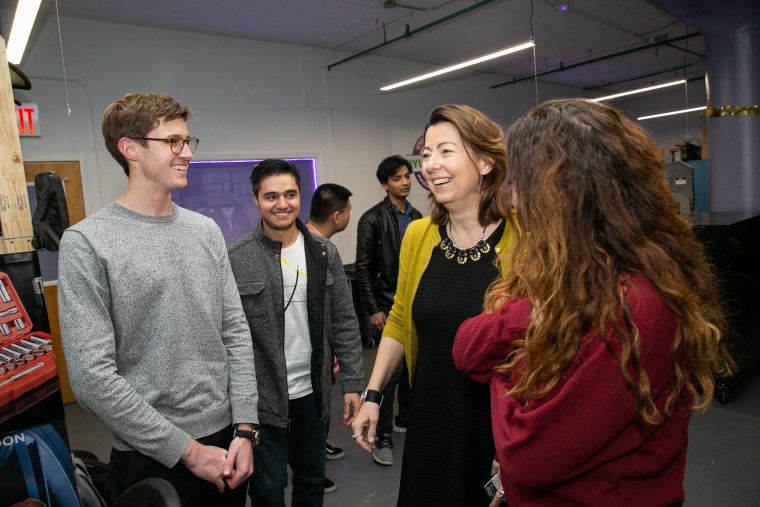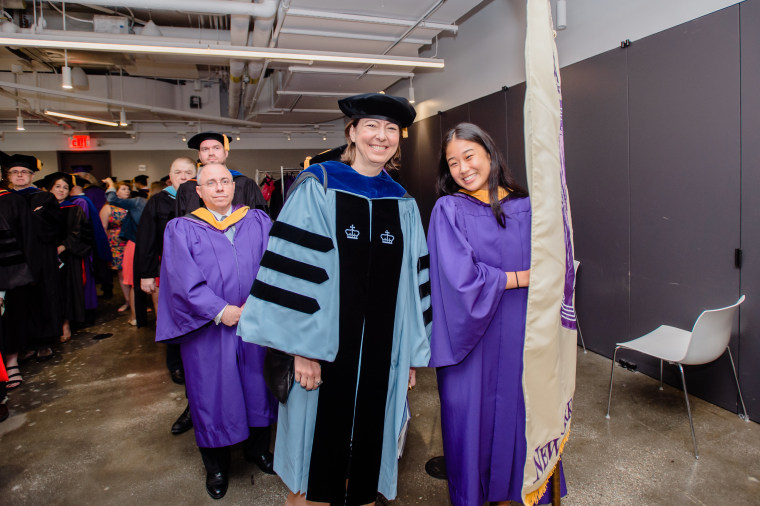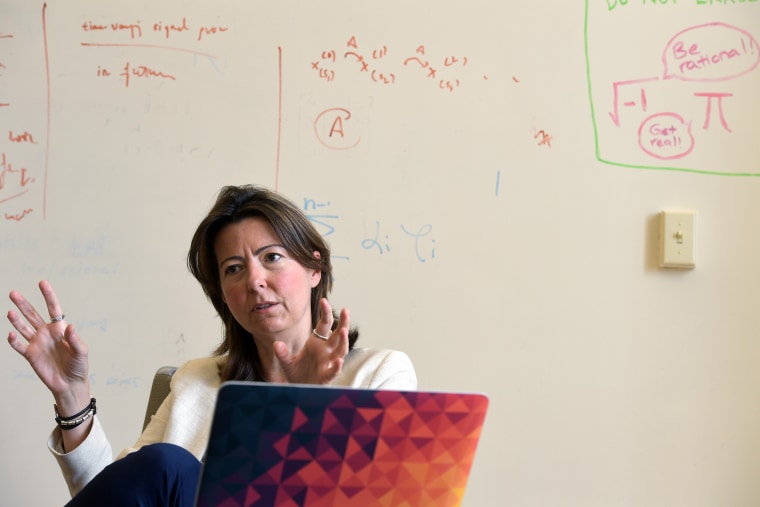Jelena Kovačević is the first female dean of New York University’s Tandon School of Engineering. Being from Yugoslavia, Kovačević said she didn’t notice the female student deficit at the University of Belgrade, which is where she got her bachelor’s degree.
But the gender gap really stuck out to Kovačević when she started her Ph.D. program in the United States at Columbia University, where she graduated in 1991. Now, at NYU, she’s intent on supporting female students as they apply and make their way through the program.

Kovačević became dean in 2018, and this year the school’s incoming class consisted of 46 percent women — a number that has gone up 81 percent since 2015. While she’s quick to point out that the number is a reflection of the entire faculty and staff, it’s worth noting how far it is above the national average, which is 23 percent.
RELATED: 5 ways to close the gender gap for women in STEM
While the percentage of women at NYU’s engineering school signifies change, the picture of the industry as a whole is bleak. According to the Society of Women Engineers, only 13 percent of engineers in the workforce were women in 2019. Worse? They earned around 10 percent less than their male counterparts.
That’s why Kovačević’s goal of recruiting more women is more important than ever — and she’s consistently brainstorming ways to do better. “I talk to many people about how we can do better,” said Kovačević. For example, she has been working to form student groups and mentoring opportunities through the Women at Tandon Committee, which consists of administrators and faculty who are committed to seeing female advancement in STEM fields.
In addition to attracting female students to the field, she wants to create a program and environment where women not only feel welcome, but where they want to stay for the entire program.
RELATED: 10 awesome books for young girls that encourage and celebrate STEM
"I think that it’s important for young women, young men and young kids to see that a scientist or an engineer or a successful person or a dean doesn’t have to look a certain way,” said Kovačević.
In general, her main focus is on the students.
“My favorite part of this job is really the students — it has always been students,” said Kovačević. “I think I went into academia because of students, I love to teach, I love to talk to them, I love to hang out with them.”
Kovačević is quick to admit that being the dean is a very emotional, high stress role. She often reflects on the best career advice that she was ever given: “Carry people with you.”

“I think the best career advice is to try to carry people with you, and I think this is what teachers do naturally — you have to gauge the feeling and the atmosphere and the energy in the room to see whether people are with you,” said Kovačević. “You need to understand where the other person is coming from. Being cognizant of where people are and how they’re hearing what you’re saying is very important.”
RELATED: How to grow your STEM career when you're the only woman in the room
Kovačević's ability to inspire people is apparent, as is her passion for teaching others. She believes that one of the keys to career success is in finding a mentor — and she encouraged students to look for one early on. Kovačević was lucky enough to find mentors in both of her parents.
“The first woman who was my biggest mentor was my mom — she was amazing,” said Kovačević. “My mom had infinite confidence in me and believed I could do anything I wanted. The only time I remember her being disappointed was when I sold myself short.”
Her father, Živorad Kovačević, was the mayor of Belgrade and the Yugoslav ambassador to the United States for two years beginning in 1987. He also wrote the first English-Serbian and Serbian-English dictionaries of idioms. Kovačević emphasized that her dad, even though he was busy, always made time for her and made her feel important. “Both my mom and dad had a crucial influence on me,” said Kovačević.
These early experiences taught her the importance of mentors early on in her life.
“Find a mentor or someone you can trust so you can kind of share your thoughts and worries and insecurities and wonders in a safe environment,” said Kovačević. “And that person can be a man or a woman.”
From there, she advised young women who are looking to advance in their industry to “look at the places that are really at the leading edge of gender equity in your field — you can see that by the messages they have and what they prioritize.”
